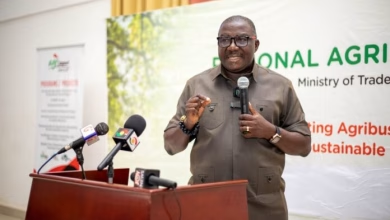The International Monetary Fund (IMF) has released its Second Review of Ghana’s Extended Credit Facility Programme, highlighting a positive macroeconomic outlook for the country, but also acknowledging significant downside risks.
Downside Risks
External factors: A worsening global economic climate could negatively impact Ghana's economy.
Debt restructuring delays: Delays in restructuring Ghana's debt could create financial strain.
Pre-election policy changes: Policy adjustments or reforms implemented before the end-of-2024 elections could disrupt economic stability.Positive Program Performance
The IMF commends Ghana’s progress under the Extended Credit Facility Programme. However, the report emphasizes the need for continued efforts in several areas:
Increase domestic revenue: Ghana must find ways to generate more income internally.
Control government spending: Reducing unnecessary expenditures is crucial.
Curb inflation: Bringing inflation down to single digits is a priority.
Rebuild foreign reserves: Strengthening Ghana's foreign currency reserves is essential.
Address financial sector issues: Resolving legacy problems within Ghana's financial sector is necessary.
Improve foreign exchange management: The way Ghana manages its foreign exchange market needs improvement.Meeting Program Targets
Ghana met most of the program’s targets set for December 2023. However, there were some shortfalls:
Net international reserves: Targets for accumulating foreign reserves were not met due to difficulties in the cocoa sector and higher-than-expected energy payments.
Non-oil revenue and social spending: Temporary factors caused Ghana to miss targets in these areas.Progress on Structural Benchmarks
Ghana achieved four out of six structural benchmarks set by the IMF. There were delays in meeting benchmarks related to addressing a specific bank’s solvency issues and amendments to Ghana’s central bank act.
Looking Ahead
The IMF highlights several key areas for Ghana to focus on in the future:
Fiscal consolidation: Balancing the budget while protecting vulnerable populations.
Monetary policy: Maintaining a restrictive monetary policy to control inflation and promote a flexible exchange rate.
Policy reforms: Implementing reforms to ensure long-term economic stability and manageable debt levels.
Financial stability: Preserving a stable financial sector after domestic debt restructuring.
Governance and transparency: Strengthening governance practices and increasing transparency.
Inclusive growth: Encouraging private sector-led economic growth that benefits all Ghanaians.